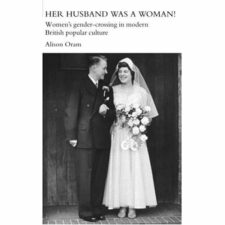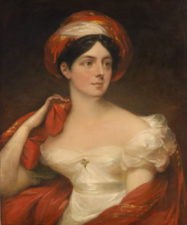THE HISTORY & POLITICS OF THE WALLIS WINDSOR AFFAIR
WE, Madonna’s film of the Windsor-Warfield-Spencer-Simpson imbroglio, raises questions of the relationship of film to history, women’s role in history, and whether the history of ‘important’ women – or women ‘important’ through an ‘important’ man – has a place when ‘ordinary’ lives (or lives once seen as ordinary) are more often the subject of present day research.
WE has been nominated, rightly, for an Oscar in the category of costuming, though in no other category. The absence of such nominations is probably best understood in that the film script and its direction are particularly orientated toward a particular perspective – which appears to be Madonna’s personalised view. This does not necessarily translate into a universal or Academy appeal.
In Madonna’s WE two stories run side by side. Most attention plays on the New York story of ‘Wally’ – nicknamed in deference to her having been named for Wallis Simpson. This detracts from the power politics inherent in the ‘real’ story – Wallis and David (Edward) Windsor.
Wally, as with Wallis in her first marriage (to Warfield Spencer) is subjected to criminal assault at home. She connects with Wallis through the late 1990s New York auction where Wallis Windsor’s material trappings are sold. For Madonna, Wally’s story must have parallels with that of her predecessor, however, apart from violence in Wallis’ first marriage and Wally’s apparent reverence for the goods left behind on Wallis’ death, it is difficult to fathom them.
Nonetheless, Madonna’s sympathy for her subject is clear, and her recognition that, despite the lesser coverage, Wallis Windsor’s story is that which needs airing. WE points toward the likelihood that although David was content with the ‘love affair of the century’, Wallis was not so besotted. Rather, the ‘Constitutional Crisis’ (as it was and remains known) left Wallis locked into a relationship with a man who (apparently) adored her, but which denied her freedom, giving her little space to develop herself as anything other than the woman for whom a King gave up the crown. The triviality of a life lived as principal entertainer and helpmeet of an exiled British royal family member would anaesthetise many. At least Wallis Windsor did not want for financial security – so long as the adoration remained directed toward her.
Is all this suitable for soap opera rather than the seriousness of ‘true’ historical research and inquiry? The number of books, films and television hours made on the subject confirm its popularity for a general audience. Someone is buying the books and the cinema tickets, and watching at home! The variety of authors, directors, producers and television stations from whom and from which these biopics emanate confirms an abiding interest in the subject-matter: Wallis, David, The Crisis, The Family, The Firm …
WE does relay the beginnings and possibilities of a powerful film which promotes thinking as to appropriate topics for women’s history and directions it might take. A redeeming feature is Madonna’s seeking to tell the tale from a point of view less often recognised, much less valorised: that of Wallis Windsor (as she became) herself. The Duchess of Windsor’s own book, The Heart Has Its Reasons, published as a memoir in 1956, was apparently ghost-written and has been critiqued as rearranging facts, glossing over or avoiding motives and, in sum, re-writing reality. A King’s Story – David’s perspective – also had the help of a ghost-writer, although both she (Wallis) and he (David) are said to have been more directly involved.
Some books do purport to tell ‘her’ story: Greg King’s Wallis – The Uncommon Life of The Duchess of Windsor, 1999, 2003, Arum Press, London; Anne Sebba, That Woman – The Life of Wallis Simpson, Duchess of Windsor, 2011, Weidenfeld & Nicolson, London; and Hugo Vickers, Behind Closed Doors – The Tragic, Untold Story of the Duchess of Windsor, 2011, Hutchinson are examples. Although titles or subtitles don’t always convey content, these are an indicator of each author’s angle. Possibly, publicity predating the commencement of WE’s filming may well have led to the publication of the latter two. Similarly with Diana Mitford Guiness Mosley’s The Duchess of Windsor – A Memoir, 2012, Gibson Square Books, London. Curiously, this book bears Diana Mitford’s original family name on its cover, her later married name – Mosley – on the flyleaf and omits any reference at all to her second husband’s family name. Fortunately, she writes more in the style of a Mitford than Mosley or Guiness, a droll humour enlivening this slim volume.
Some, or indeed many, may believe that historians have something better to do than ‘buy into’ the politics surrounding the woman-become-famous-through-marriage (or, rather, infamous) and that there is so much to be done in reclaiming women’s history than spending time on Wallis and her ilk. Yet there are important issues here – of power and its ruthlessness, the politics of hypocrisy (it’s fine to have a mistress so long as she remains married to someone else, and there’s nothing wrong with three in a marriage or possible marriage), undercover attacks through allegations against the character of the woman who refuses to go along to get along, abandonment and the curtailing of freedom. These are not isolated in time. They have echoes in the past and the more recent past.
Although they may be or seem to be extreme examples of the control and curtailment of women’s lives, or so exclusive as to be disassociated from the lives of ‘real’ women, exploring the exercise of power and its operation in these instances may provide insights into power and control of and over women as a group. These insights may well justify our (or some of us) exploring the history of (some of) this exclusive band.
JAS © February 2012
The Hon. Dr Jocelynne A. Scutt is a Barrister & Human Rights Lawyer, historian and filmmaker. Her research includes the history of the struggle for equal pay, past and contemporary history of violence against women, and women and war.

